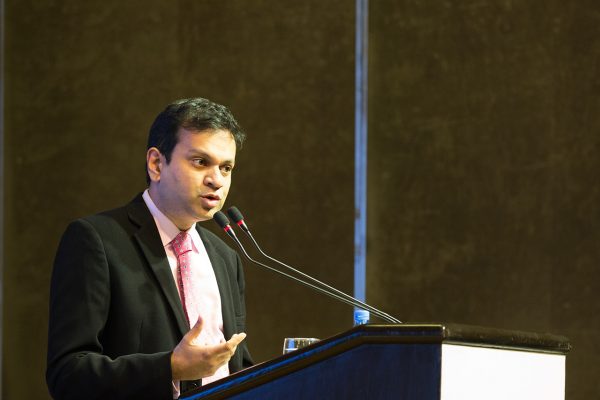Reading Time: 3 minutes
Below is a post by Renee Woliver about SIT Professor Jeff Unsicker, who recently conducted assessment of BRAC’s Advocacy Unit in Bangladesh. SIT Professor Jeff Unsicker recently returned from Bangladesh where he completed a Rapid External Assessment of the Advocacy Unit of BRAC – one of the world’s largest and most respected development NGOs. He also facilitated a four-day training on advocacy for 20 staff in the unit and several other BRAC programs. Jeff teaches policy analysis and advocacy courses at SIT. Read his complete bio.
Below is a post by Renee Woliver about SIT Professor Jeff Unsicker, who recently conducted assessment of BRAC’s Advocacy Unit in Bangladesh.
SIT Professor Jeff Unsicker recently returned from Bangladesh where he completed a Rapid External Assessment of the Advocacy Unit of BRAC – one of the world’s largest and most respected development NGOs. He also facilitated a four-day training on advocacy for 20 staff in the unit and several other BRAC programs. Jeff teaches policy analysis and advocacy courses at SIT. Read his complete bio.
The director of BRAC’s Advocacy Unit, Sheepa Hafiza, is an SIT alumna. She holds a postgraduate diploma from SIT’s program in NGO Leadership and Management and a master’s degree from the Program in Intercultural, Service, and Leadership. Sheepa requested the assessment and training and also provided invaluable support during each.
The training included a multi-day field visit to a rural district of Bangladesh to observe how BRAC is organizing ultra poor villagers (those without the resources to participate in microfinance programs) and allies among the local elites to advocate for their rights to basic government services such as social safety net funds, land, health services, and education.
A second “visit” was within Dhaka where Jeff joined a public demonstration and workshop with other NGOs and government officials to advocate for ratification of the UN Convention on the Rights of Migrant Workers and their Families.
Jeff also had interviews and meetings with several dozen staff and external resource persons, including BRAC’s renowned founder and chairperson, and reviewed numerous English language documents.
Jeff was impressed by what he learned.
“As is the case with so many aspects of BRAC, the scale of the advocacy work is incredible. Here’s an example. One of the most important sources of revenue in Bangladesh is the remittances that migrant workers, mostly unskilled, send home from the Middle East and other regions. Yet these workers have little protection, including from often corrupt dalals or middle men who the migrants rely on for securing jobs, passports and visas, and travel.
In the past several years, BRAC’s Advocacy Unit has arranged for over 2,800 village performances of popular theater productions that depict those problems; the performances have stimulated the immediate formation of over 1,900 associations of concerned villagers. The associations, along with six new BRAC Safe Migration Centers, have provided information and support to 1.7 million persons seeking or returning from overseas work and family members of those overseas. During that same time, the Advocacy Unit has organized over 200 workshops with government officials on the problems faced by migrant workers. Its media outreach has resulted in over 800 stories in national newspapers and another 200 on television and radio.”
Additionally, from the perspective of changing public policy, Jeff asserts that these efforts have been very effective.
“Working in alliance with over 40 other NGOs, BRAC has played key roles in convincing government ministries to allocate more funds and in some cases double the level of services it provides to migrants. In addition, it appears that the Parliament may soon ratify the UN Convention (more than a decade after it was signed) and, more importantly, there has been great progress toward a new, comprehensive law to protect and support migrant workers.”
Jeff’s report concluded that BRAC, while not widely known for policy advocacy, has a very long history of shaping the national policy discourse and ensuring that poverty and related issues are at the forefront of the policy agenda setting.
“When combined with a number of initiatives that have been launched over the past decade – including the innovative social communication and media mobilization work of Sheepa’s unit – BRAC is well positioned to assume a leadership role, not only in Bangladesh but internationally.”
The report includes nine recommendations about how BRAC might realize that potential. “However, with all due humility, I stressed the fact that the assessment was both rapid and external and thus the recommendations were not guidelines for action but rather ideas to stimulate reflection and discussion by those internal to BRAC.”
One of the recommendations that emerged from various meetings, including with the Vice Chancellor of BRAC University, is for BRAC University and SIT to explore the possibility of a joint certificate program in advocacy that would involve faculty and students from both institutions. “In any case,” Jeff concluded, “there’s little doubt that SIT has much to gain from our connection with BRAC and that – with Sheepa and several other SIT alumni in leadership roles – there is much more to come.”





